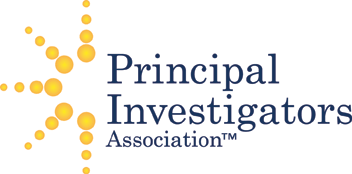Writing in Science & Medicine
“There is no form of prose more difficult to understand and more tedious to read than the average scientific paper.”
Francis Crick, the co-discoverer of the structure of DNA, wrote this in 1994 in his book The Astonishing Hypothesis. Crick and many of his colleagues were acknowledging then what every scientist knows today: many scientific communications are largely unreadable.
Dr. Crick and others of his generation witnessed the transformation of scientific prose from reasonably understandable to largely unreadable—papers and grants filled with a jungle of jargon that even the most astute reader cannot untangle, errors in logic, repetition, and misuse of the English language that masks the meaning.
This has caused known problems for scientists world-wide, for their careers and for the delay in disseminating their unique findings to the world. The rapid increase in science specialization, complexity, and new language have been largely to blame. But I believe that scientists largely lack the training needed to simplify their language. As science becomes increasingly more specialized and complex, for many scientists, it becomes even more difficult to communicate with their readers in clear and simple terms.
| “Learning how to write clearly, directly, more simply, is undoubtedly one of the most important and valuable skills any scientist can learn. In college, we had a notion that scientists had to learn the technical skills of their field but not how to write. And that is the biggest falsehood you could possibly perpetrate on young people. I believe that writing and rhetoric are the most valuable skills across any discipline in any field, especially science and medicine.” - Christopher Dant, PhD Author |
This 90-page guide has been designed to help investigators, in any field, understand the root of poor writing, identify red flags within their own writing style, and craft clear, concise, powerful pieces that meet the requirements of the most demanding audiences within their professional careers. This guide includes:
- Basic Writing Principles You Actually Know, But Forgot About
- What Makes a Poor Writer? Why You Might Be Your Own Worst Enemy
- Saying More with Less: The Power of Conciseness
- How to Impress Your Readers With Less Pompous Writing
- Why Clear Writing = Clear Thinking = Clear Writing
- Redundancies in Writing: Why Repetition Is Not Always a Good Thing
- How to Keep Reviewers’ Focus on the Science, Not Your Grammar
- The 11 Rules of Good Writing and Revision
- Significance, Impact, Innovation: Why These Concepts are Vital to Scientific and Medical Writing
- The Power Behind an Outline: Simple to Create, Often Overlooked
- Real-life Experiences from a Seasoned Expert
- Before and After: Detailed Examples Show Which Revisions You Should Consider
Making Too
- Writing Exercises to Get You on the Path to Becoming a Successful Author
- And Much More!
About the Author:
Christopher Dant is a faculty instructor at Dartmouth Medical School and the Norris Cotton Cancer Center. His PhD was concentrated in cellular and molecular biology. Early in his postgraduate career, he apprenticed with a Senior Editor at Journal of the American Medical Association (JAMA), and went on to work as a biomedical writer for life sciences investigators in academia, private industry, and government agencies. Before coming to Dartmouth, Dant was a Projects Manager at the Stanford Medical School for grants and manuscripts and served as the Director of Medical Publications at Genentech in San Francisco, where he worked with many thought leaders in medicine. He regularly presents at national and international medical meetings on writing. At Dartmouth, he works with investigators in developing grant proposals and programmatic initiatives, and educates faculty in grant and manuscript writing skills. He is owner of Medcom Consulting (http://medcomconsulting.org/MedCom.html), a medical and scientific communications company for academic investigators writing grants and manuscripts. Christopher is also a published author of fiction and lives in Vermont with his wife Maureen and dog Chauncey.
Limited-Time Offer:
Purchase this new 90-pg. guide in PDF format for only $299 $179!
PLUS! Order today and receive a FREE MP4 of the 60-minute Webinar entitled
“What Journal Editors Want You to Know About Scientific Publishing”
(a $197 value, yours free!).
Upon ordering this guide you will automatically receive a PDF (digital) copy.
100% Satisfaction Guaranteed.
| This guide is brought to you as a training tool by the Principal Investigators Association, which is an independent organization. The information presented and its contents are not connected with the National Institutes of Health (NIH) or the National Science Foundation (NSF), nor are they endorsed by these agencies. All views expressed are those personally held by the author and are not official government policies or opinions. |
Additional Information
| Report Format | PDF Download, Print + PDF |
|---|

